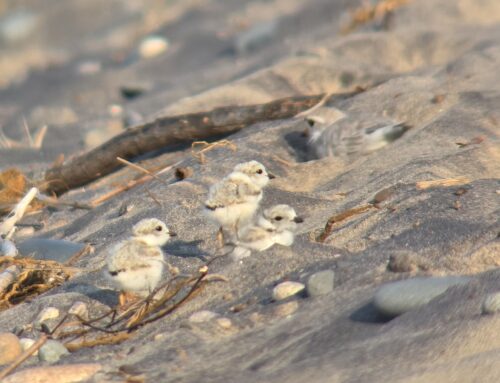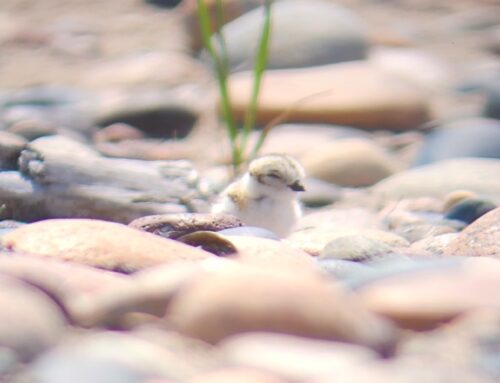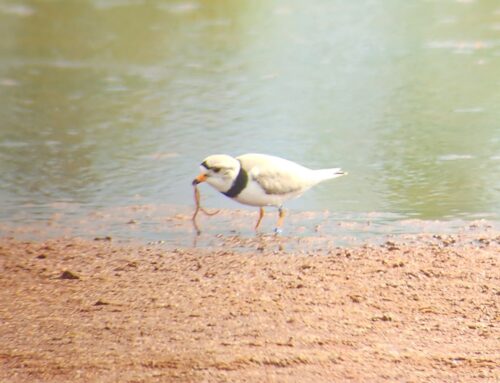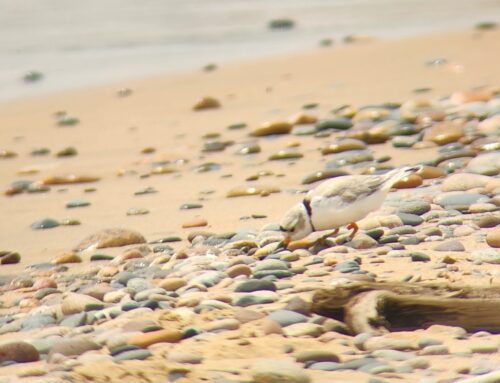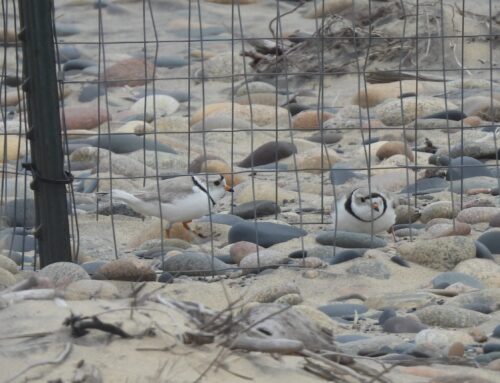There are certain subjects that dominate conversation around WPBO. Weather, migrations, and our latest spoils from out-of-town grocery hauls are trusty standbys. I’ve noticed, though, that we’ve added some summer specials to the mix, like the tenuous relationship between black bears and bird feeders, and the mosquito hatch.
This is, actually, my first full summer in the Upper Peninsula. Mosquitoes have emerged as the defining force in my movements. Take, for example, the seemingly simple task of getting from my truck to the field house during the mosquito hours of evening. It requires a bit of legwork: before opening my truck door, I collect any incoming belongings and position my house key for the smoothest entry. Then, I open the door, slip out, rush to the house, and hurry in. This is no arduous distance. In fact, it’s like 10 steps — but those 10 steps are still enough to accumulate a small legion of mosquitoes on my tail. Inside the house with the door shut, I dispatch my intruders with an electric racket and breathe in the sweet smell of victory (err, fried mosquito, which has a distinct scent of barbecue gone very wrong). When I do make it to bed, I switch off the lamp and wait for the inevitable drone of the ones I missed. Some people feel security through keeping a gun in the nightstand — I, however, just keep the bug zapper on mine.
Whitefish Point has proven a great place to challenge paradigms. A great example of this would be my perspective on Merlins. The first of this species I ever saw (when I was nine) were just a mile or so from the WPBO field house that is my current dwelling-place. I like to imagine that the Merlin I hear each day — often the first bird I hear each morning — is related to that lifer Merlin. But when I’m on-shift, out at the beach, my heart catches in my throat when I see the Piping Plovers freeze into the cobbles, look up, and catch a Merlin stooping in.

Midges on the Piping Plover exclosure. Alison Vilag.
But where my worldview of Merlin has become — at least temporarily — a little less cheery, my worldview of the hatch, through the lens of WPBO, has become more positive. Large insect hatches do have a distinct magic — experienced by taking a canoe down a trout stream during a mayfly emergence, for example, or even the other night, when scores of antlions came out on the beach in what, in honor of their fluttery flight, we deemed the fairy hatch. The mosquito hatch does not have this inherent magic. It has more of an inherent itching. But sitting out on the beach with the Piping Plovers has been a good study on the importance of hatch events to food webs. (And, yes, this concept extends to mosquitoes.)
There are times out on the beach when swarms gyre above the sand, and the only sounds are insect drones and shorebird voices of a medley of pitches. During these times, I watch the female Piping Plover gorge from her nest — a breakfast in bed of sorts — and enjoy the Killdeer chicks learning, with the temporary abundance, to feed themselves. The hatch, I’m coming to recognize, is something sacred. It is a natural rhythm vital in maintaining those natural rhythms more readily appreciated, and it is not something to neutralize for the sake of our own comfort.
–Alison Vilag, 2020 WPBO Piping Plover Monitor & Outreach Specialist

A tree frog (either Cope’s gray or eastern gray), who undoubtedly has been consuming the effects of some of our insect hatches. Alison Vilag photo


